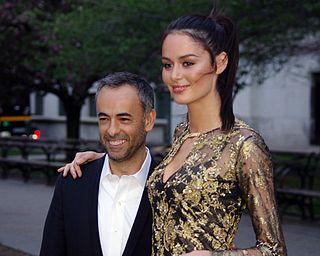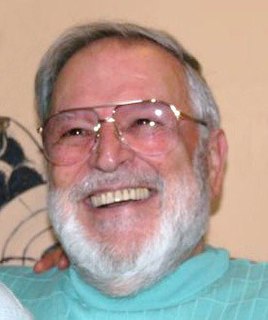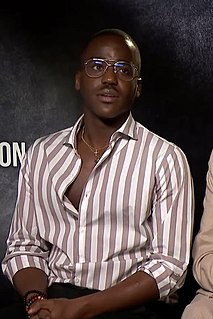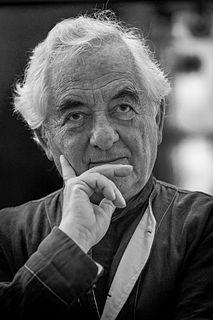A Quote by Francisco Costa
When I say art influences me, which it does, it's not at all in a literal form. You go and see exhibitions or collections or meet an artist. It's all a compilation. Every moment, at all times, all this information. Then all this information disappears, and it shows up later in the process.
Quote Topics
Related Quotes
Normally if you add information to information, you have more information. In case of my art, I destroy information, I would say, because the image is disturbed by the writings. In a way, they become pure imagery. For me it's really fun because it's an idealistic approach to images, to just play around with information and see what's happening.
The mechanical brain does not secrete thought "as the liver does bile," as the earlier materialists claimed, nor does it put it out in the form of energy, as the muscle puts out its activity. Information is information, not matter or energy. No materialism which does not admit this can survive at the present day.
Television is altering the meaning of 'being informed' by creating a species of information that might properly be called disinformation. Disinformation does not mean false information. It means misleading information - misplaced, irrelevant, fragmented or superficial information - information that creates the illusion of knowing something, but which in fact leads one away from knowing.
We hypostatize information into objects. Rearrangement of objects is change in the content of the information; the message has changed. This is a language which we have lost the ability to read. We ourselves are a part of this language; changes in us are changes in the content of the information. We ourselves are information-rich; information enters us, is processed and is then projected outward once more, now in an altered form. We are not aware that we are doing this, that in fact this is all we are doing.
If you think of dramaturgy in North America, which is so realistic and so literal sometimes, sometimes what theaters - especially dramaturgs - ask for is more information, which sometimes can really weigh down a play. There's only so much information a play can have. If you start putting in so much information, it becomes something completely different, it doesn't sing.
All the other editors at DC never gave me a moment's time. They would take the thing and give me a check and say, 'I'll see you in two weeks.' They never gave any kind of encouragement or information. They were very competitive with each other. They didn't want to teach an artist and then lose him to some other editor.
The normal way of gathering information is through sound: when you hear information that you want to gather, you look in its direction, you see what it is, if you choose you can get closer, you can see it, you can touch, and then, finally, the most committed form of data gathering is to taste it and eat it. But for the urbanite, we're cut off from our primary sense, and I want to stress that - our primary sense of gathering information about the place that we're living in - and instead, we're in a war zone.
Today it's not strange to see an artist 30 years old having her first retrospective! Different time, different speed. After having been the key point of recognition for an artist, the museum today is just another place to experiment and work, like we can do in any art fair. The king or queen of the moment is completely ignored and replaced by the new one a few years later. Contemporary novelty in art disappears faster than the seasonable changes of the fashion designs.







































